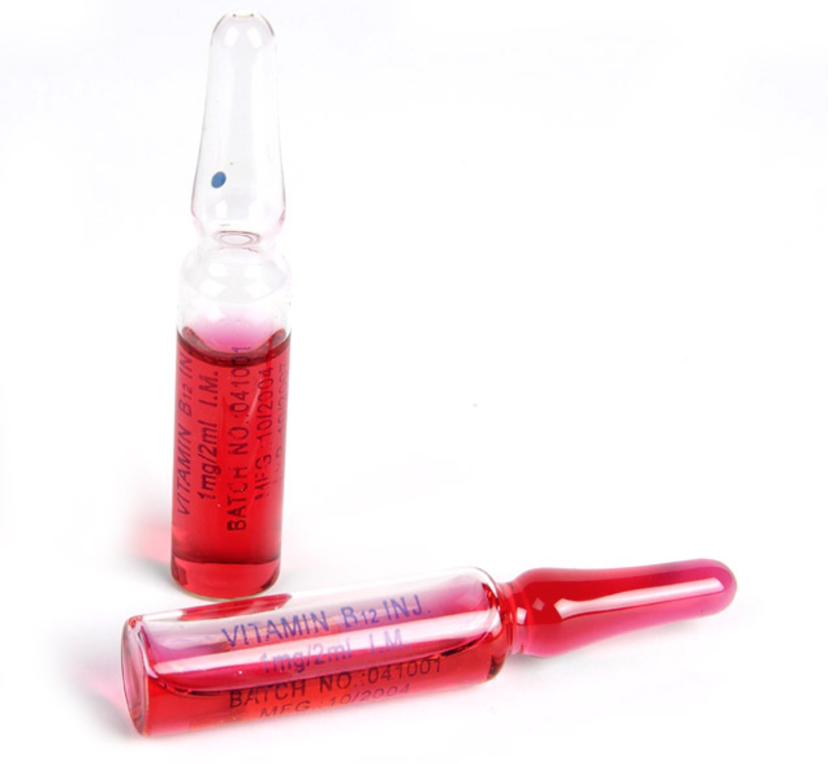
Vitamin B12 Injections
Vitamin B12 (cobalamin) is an essential water-soluble vitamin that the body uses to maintain healthy nerve cells, produce RNA, DNA and red blood cells and help iron to function properly. B12 also works with folate to produce the amino acid SAMe which controls mood and supports immune function.
Vitamin B-12 is to the human body what gasoline is to a car; without it, you’re not getting anywhere. A diet that includes meat, fish, and dairy products can provide natural sources of B-12; however, these foods typically carry a heavy toxic load. Vegetarians and vegans can suffer from B-12 deficiency, as can meat eaters, making B-12 deficiency a common problem.
Signs of low B12 levels include, but are not limited to fatigue, weakness, sore tongue, tingling and numbness in your fingers and toes, difficulty walking, mood change, or memory loss.
Vitamin B12 is an essential vitamin that’s crucial for many vital metabolic and hormonal functions — including the production of digestive enzymes and carrying important nutrients into and out of cells. Due to how it helps convert and synthesize many other compounds within the body, it’s needed for well over 100 daily functions.
Some of the more common benefits of receiving B12 injections include improved moods, increased energy and metabolism, as well as protection against cognitive decline.
Other roles that are attributed to vitamin B12 injections include:
- Forming red blood cells
- Playing a role in DNA/RNA synthesis
- Acting as a cofactor for methionine synthase (helping with methylation or the conversion of homocysteine to methionine, which protects cardiovascular health and more)
- Facilitating metabolic conversion of protein and fats
- Carrying out neurotransmitter functions and helping with production of hormones
- Helping convert amino acids and make creatine
- Producing myelin sheath (the coating of nerves)
- Helping with synthesis of hemoglobin
- Playing a role in fetal development during pregnancy
Vitamin B12 shots are available by prescription only and are administered into a patient’s muscle tissue once monthly, although dosage varies depending on age and medical history.